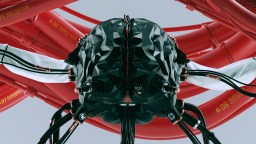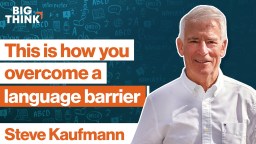brain
fMRI scans show each new thing you think of as a “thought worm.”
How a study on worms pointed the way towards a treatment for dementia.
A new study explores how the brain encodes different scents — a topic which scientists know relatively little about, compared to our other senses.
Are we genetically inclined for superstition or just fearful of the truth?
▸
13 min
—
with
A growing body of research suggests COVID-19 can cause serious neurological problems.
The year 2020 will go down in history as one that shook our inner and outer worlds.
▸
with
Do we really know what we want in a romantic partner? If so, do our desires actually mean we match up with people who suit them?
A study of the manner in which memory works turns up a surprising thing.
If machines develop consciousness, or if we manage to give it to them, the human-robot dynamic will forever be different.
▸
16 min
—
with
The coronavirus pandemic has brought out the perception of selfishness among many.
Human brains evolved for creativity. We just have to learn how to access it.
▸
12 min
—
with
According to a licensed clinical psychologist, we need to change the way we define narcissism in order to recognize it more clearly for what it really is.
Some of the world’s top minds weigh in on one of the most divisive questions in tech.
▸
17 min
—
with
Unraveling the mysteries of adult neurogenesis may have clinical applications.
Living like a genius and finding ways to “optimize” sleep is not necessarily good for your health. Here’s why.
▸
8 min
—
with
Three scientists examine three dimensions of psychopathy: neurological, social, and criminal.
▸
12 min
—
with
A team of scientists in Basel believes this will open up new lines of research.
Don’t worry about grammar rules at first. They’ll only trip you up.
▸
3 min
—
with
Reveri Health has launched a new stress-relief self-hypnosis program through Amazon Alexa to help combat the anxiety of COVID-19.
A specialized MRI sensor reveals the neurotransmitter’s influence on neural activity throughout the brain.
Light therapy might help your natural circadian rhythm and even stave off seasonal depression.
Could better teaching practices make paying attention easier for everyone?
A groundbreaking Stanford University study explains the areas of the brain that are impacted by hypnosis.
Technique may enable speedy, on-demand design of softer, safer neural devices.
A joint study by two England universities explores the link between sex and cognitive function with some surprising differences in male and female outcomes in old age.
A new study may help us better understand how children build social cognition through caregiver interaction.
Researchers at UT Southwestern noted a 47 percent increase in blood flow to regions associated with memory.
According to the analysis, the more yoga sessions a person did each week, the less they struggled with depressive symptoms.
A larger vocabulary can be a confidence booster for children and make adults better communicators.





























